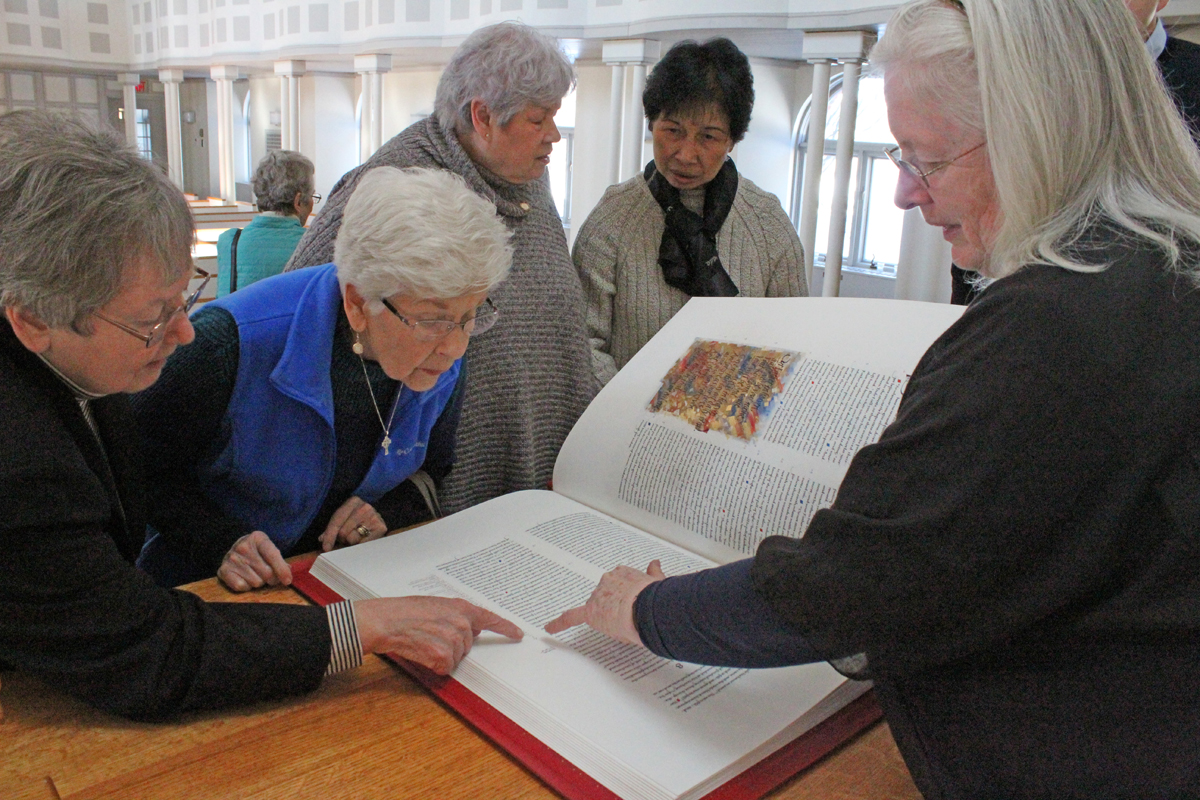
A replica of a portion of the St. John’s Bible – the first hand-written Bible created since the printing press – is now on display at Illinois Wesleyan University. Benedictine Oblates, Sisters and monks gathered with members of the university and public to kick off a year of activities celebrating it on Jan. 18.
Prioress Sister Sandra was asked to participate in the blessing of the Bible. Following are excerpts from her reflection.
I am so proud to be here today as a member of the Order of St. Benedict to celebrate the presence of the St. John’s Bible in this Illinois Wesleyan community and to participate in this blessing service.
My heart is filled with pride and gratitude as well: to the Benedictine community at St. John’s and to the leaders here who recognized the value of this undertaking and have worked to bring the Bible to your campus.
Our Benedictine tradition has always placed primacy on the Holy Scriptures. Monks were the early calligraphers, illuminators, and preservers of the Sacred Texts.
In the Middle Ages the monasteries were centers of culture and learning that kept the tradition of scriptural reading alive for the whole world.
How appropriate it is, then, that it is Benedictines who are continuing this tradition with the technology and vision of today….thus illuminating the Word of God for a new millennium.
This love of the Sacred Scriptures holds central place in the Rule of Benedict, as the Scriptures are not simply to be revered, or studied, or learned by heart, but prayed day in and day out.
At the heart of Benedictine spirituality is the practice of holy reading or lectio divina. It is reading not for information, but rather for formation, and indeed transformation.
We are encouraged to listen with the ear of the heart, to read Scripture slowly and with openness to hearing God’s call today.
The St. John’s Bible with its beautiful calligraphy and illuminations invites us into this practice of both ‘holy reading’ and ‘holy seeing’ or visio divina.
The various illuminations are not simply illustrations; rather they are spiritual meditations on the texts. They spark our imaginations and invite us to see the Scriptures themselves with new eyes.
As you spend time with the various passages in this Bible, you will notice that the images illuminate the Word, and the Word illuminates the image. The two work together to open our hearts and minds to God’s transforming presence right now.
We see this Bible as a gift of our tradition to be shared as widely and deeply as we can envision.
May God bless this undertaking!
Photo above courtesy The Catholic Post/Jennifer Willems.

Comments (0)
Add a Comment